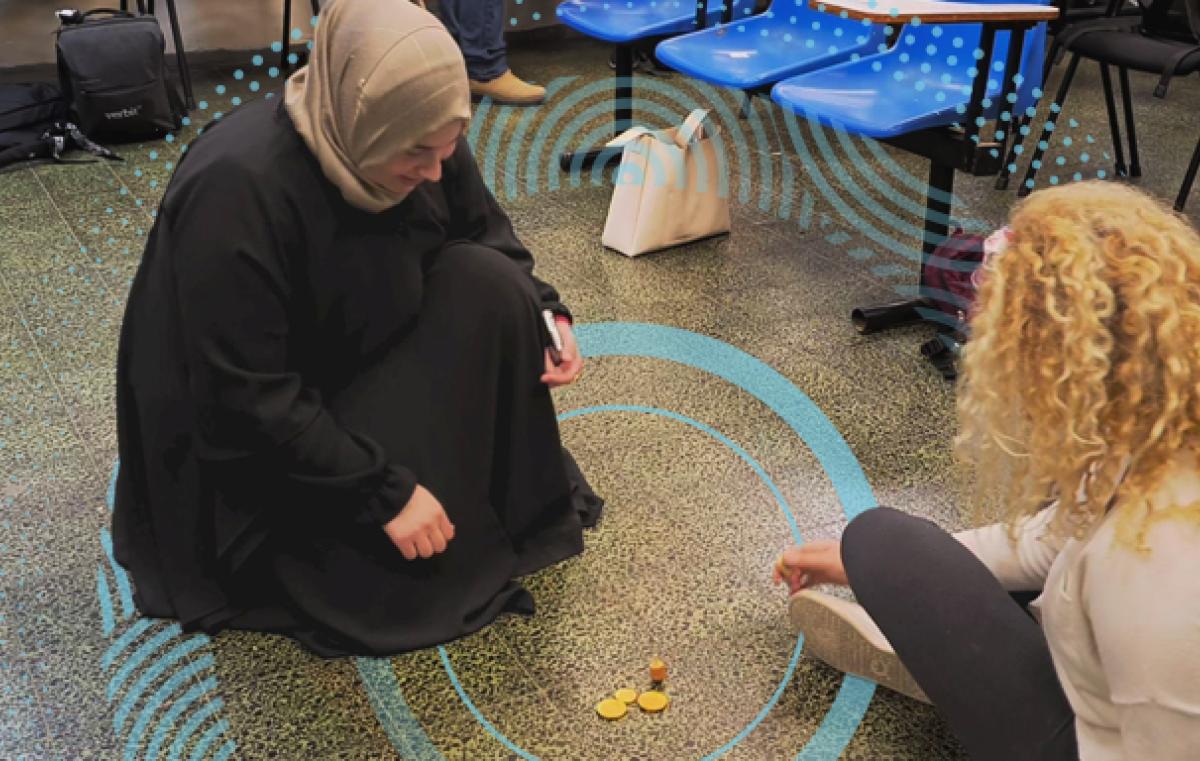Muslim, Jewish Students Ring in Chanukah
Interreligious Dialogue course facilitates positive contact between cultures

As the Jewish holiday of Chanukah began, a group of Israeli Jewish and Muslim students from Bar-Ilan University gathered to celebrate the Festival of Lights. While tasting traditional sufganiyot – jelly doughnuts topped with powdered sugar -- the students discussed the story of the Maccabees and the meaning of the holiday. The highlight was the lighting of the nine-branched menorah which is lit every night during the eight-day celebration.
The gathering took place in the framework of Dr. Ben Mollov's Jewish-Arab Interreligious Dialogue course. "The students are very interested in discussing the holidays and their meaning," explains Dr. Mollov, a lecturer in the School of Communication who specializes in interfaith and cross-cultural approaches to dialogue between Jews and Arabs. "The spiritual being, family closeness, and values of tradition are common themes they all share."
"It is a unique experience. I learned a lot of things about the Jewish religion and also about my religion, Islam," says student Diana Mahajni. "My understanding has expanded and my knowledge of the surrounding religions increased. I am learning how to adapt and accept others, regardless of the differences and beliefs, because the bottom line is there are a lot of common things between us.”
“This course gives the opportunity to build strong and positive connections between Jews and Arabs, and I feel that we have done that successfully. It holds a lot of potential, and generates hope for a better future, which is something I am excited about,” says Haddar Ben-Shimon. Diana and Haddar are both taking the course and took part in the celebration.
Dr. Mollov's course is run as part of the International Program of the School of Communication. The course has been held for four years in collaboration with the Interfaith Encounter Association and is in great demand despite limited places. The importance of the course, Mollov explains, is to facilitate positive contact between cultures. "The course is based on three principles: mutual respect, self-respect and mutual enrichment. It is built on the religious element as a theme that connects Jews and Muslims based on the similar backgrounds of the two religions."
Sessions begin with a formal conversation on a particular topic and develop into discussion groups in which students relate different aspects of their culture to deepen their knowledge on the religion of the other. For instance, one common difficulty students who observe kashrut and halal particularly share is finding appropriate food in various places, especially abroad, that meets the dietary restrictions imposed by Jewish and Islamic law. Facing the same difficulty creates a sense of partnership and basis for discussion among the students. Other topics broached in the course include family life in Judaism and Islam, including the status of women and modesty, and weddings within the different religions which inspires a feeling of solemnity and joy among the participants.
Last year Dr. Mollov and his Jewish and Arab students organized an Iftar Dinner as part of the Holy Month of Ramadan. This semester’s Chanukah celebration was a joyous complement.
Photo: Participants in the course play a traditional game of dreidel at the Chanukah celebration
Credit: Xiuyue Lu